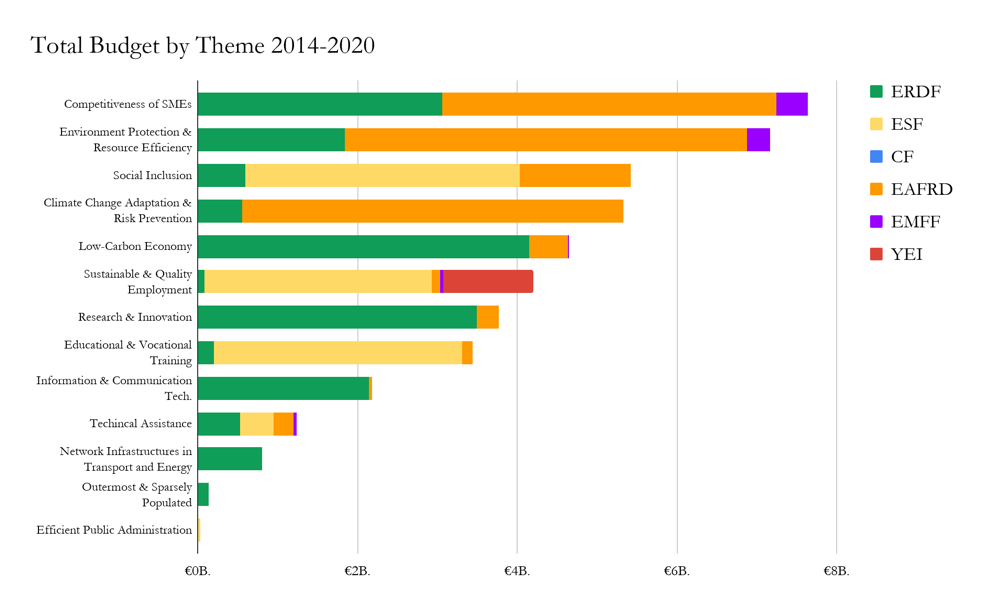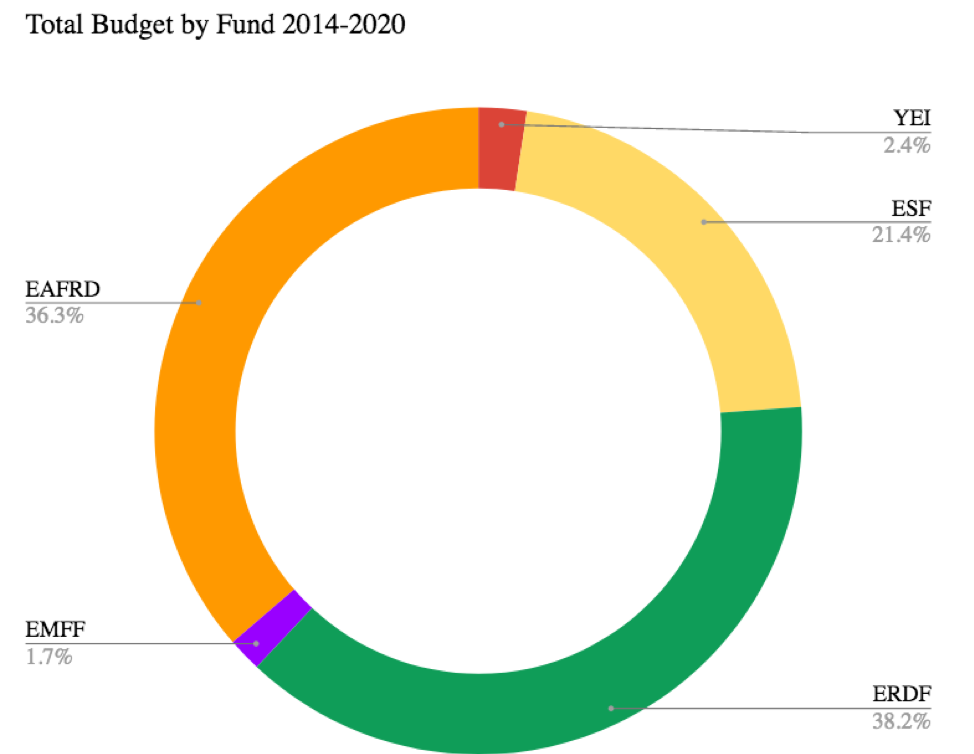News
Country Profile | France

For the 2014-2020 financial framework of European Structural and Investments Funds, the French Republic was allocated a total of €26.73 billion, which, added to a national contribution of €19.04 billion, see France reaching a total budget of €45.77 billion to be invested in various areas.
In fact, this budget is intended to be used through 83 national and regional programmes to:
strengthen research, technological development and innovation, while ensuring the accessibility, use and quality of information and communication technologies;
support SMEs (including in the sectors of agriculture, fisheries and offshore aquaculture) by giving companies better access to finance and enabling them to produce high-value goods and services;
promote employment, social inclusion, combat poverty and support labour mobility (emphasis will be placed on youth integration through YEI and efforts will be made to encourage young people to start a business);
protect the environment by supporting the transition to a low-carbon economy, including investments in energy efficiency, developing renewable energy and clean urban transport, and supporting more resource-friendly farming methods;
allow the use of financial instruments to support ICT and the rational use of resources;
facilitate the development of cities through integrated actions for sustainable urban development and support bottom-up development strategies in rural areas.
France’s main theme of investment for the 2014-2020 financial framework is the improvement of the competitiveness of SMEs through more than €7.5 billion coming from three different funds: the European Research and Development Fund (ERDF), the European Agricultural Fund for Rural Development (EAFRD) and the European Maritime and Fisheries Fund (EMFF). Special attention is paid by the French government to the environment and climate change issues. The EAFRD will help France reach its environment-related goals thanks to around €10 billion, in order to protect the environment and enhance resource efficiency, but also to address climate change adaptation and risk prevention; low-carbon economy is also on the agenda.

As shown in the chart above, the ERDF and the EMFF will also address environmental issues with €6.5 billion combined. Of extreme relevance to the Elysée’s political agenda is the topic of Social Inclusion, for which a total of €5.5 billion is being invested in the 7-year ESIF timeframe, and more than half of the total budget is covered by the European Social Fund (ESF).

The overall total budget for the 2014-2020 financial framework reached €45.77 billion. Chart 2 allows us to observe that the ERDF alone reached 38.2% of the total budget, granting France more than €17.5 billion to be used in improving the competitiveness of French SMEs and to fight climate change. The European Agricultural Fund for Rural Development helped France invest more than €16 billion in various areas, thanks to its 36.3% share. With a percentage of 21.4% and approximately €10 billion, the ESF helped the French government create more social inclusion within its society, especially in urban areas, but it also facilitated the creation of new jobs and the improvement of young workers’ skills through training programs. The EMFF and the YEI scored 1.7% and 2.4% respectively, with a total budget of €2 billion combined, which was mainly used to create sustainable and quality employment.
In the matter of absorption rate, with a 35% share of spent funding from the ESIF, France has one of the highest percentages in the European Union, being 7% above the European average of 28%. However, France is not as effective in terms of allocation of financial resources to selected projects: in fact, France is slightly below the 65% average of European countries with a total share of 61%. The 2012 decentralisation of EU funds has led to serious malfunctions in the country, according to a report by the French Court of Auditors. Problems were found especially with regards to the use of the EAFRD, because of the differences between the world of agriculture, which has resisted decentralisation, and local authorities that actually manage the funds.
In light of the results of the 2019 European Parliament Elections, it is likely that the mismanagement in the administration of European Structural and Investment Funds, in addition to other issues within French national politics, has created a feeling of protest and outcry towards the Government and the EU.
Country facts:
Name: France
Capital: Paris
Government: Semi-presidential Republic
Population: 67,348,000
Area: 640,679 km2
GDP per capita: €38,845
Currency: Euro (€)






